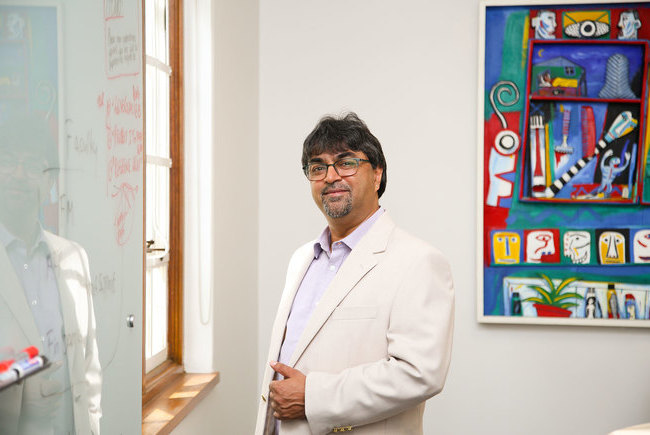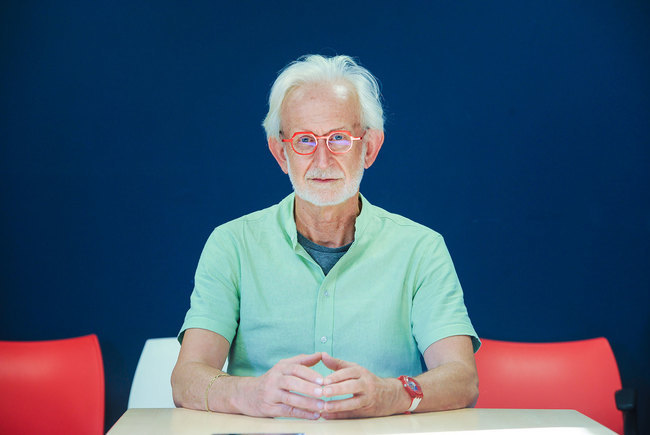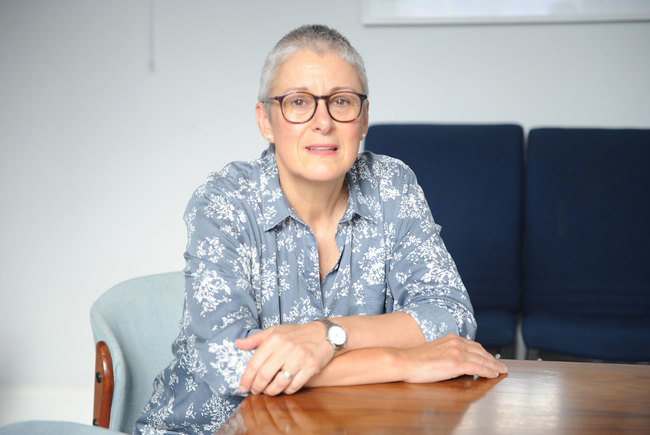Transformation
19 October 2022 Read time >10 min.
The University of Cape Town’s (UCT) Transformation Report 2021 is titled Fear, flame and metamorphosis: transformation, diversity and inclusion in uncertain times to reflect that in 2021, the UCT community was challenged with racism, queer and transphobia, and socio-economic disparities. The fire in the Jagger Reading Room brought forward important questions about how coloniality and gatekeeping continue to frame UCT as an exclusive and inaccessible space.
Yet even with these challenges, the university, through transformation agents, was able to transform these difficult realities through tactical and innovative actions.
The year 2021 was UCT’s third data set and a further step in the university’s journey towards 2030.
Transformation, inclusivity and diversity are interconnected yet distinct concepts that can help with making sense of the nature of inequality within higher education and the effects of the solutions that are developed.
For transformation work to be effective and to have a meaningful impact, transformation agents in faculties and non-academic departments need to have the resources, time and opportunity to conduct their work; and entities should have functioning Transformation Committee structures.
While no faculty or non-academic departments met all the criteria of this benchmark, the Faculty of Health Sciences (FHS), Research Office (RO), and the Faculty of Science came close. In these three entities, transformation was prioritised through the appointment of a transformation officer in the FHS, the creation of working groups to respond to the Inclusivity Survey findings in the RO, and the hosting of a faculty assembly on transformation in the Faculty of Science.
Highlights
In the Faculty of Commerce, the first postgraduate transformation grant was awarded. In addition, great progress has been made in terms of appointing black academics in the faculty. Lastly, the Commerce Dean’s Advisory Committee (DAC) started a strategic planning process with transformation and inclusivity at its core.
The Department of Student Affairs (DSA) reported progress in achieving employment equity goals and targets, and changing the names of residences (such as Smuts Hall) to undo UCT’s colonial heritage. The Student Wellness Service (SWS) put in place interventions which provided psychosocial support services, including access to social workers, psychologists and psychiatrists, to support student mental health and overall well-being.
The FHS reported several highlights for 2021, including the appointment of a full-time transformation officer, a productive and supportive relationship between the Deanery and the Transformation Committee, leading to meaningful actions; and a budget allocation of R60 000 toward transformation. This budget was used to create videos in five official languages, inviting responses to an FHS transformation survey. New transformation chairs were elected for the faculty during this period.
The UCT Graduate School of Business (UCT GSB) prioritised hosting employment equity, diversity and inclusion, and transformation workshops for the school. This included workshops focusing on understanding and accommodating disabilities, such as autism. In addition to this, the Solution Space incubated 30 entrepreneurs with early-stage ventures from eight African countries.
The Human Resources (HR) department focused on providing support related to COVID-19 and work–life balance, including hosting mental health and wellness sessions. In addition, the management of HR worked with the HR Transformation Committee to ensure they played a meaningful role in the department.
The Humanities Transformation Committee (HTC) focused on developing a five-year plan and identified four strategic areas: Employment Equity, Student Engagement, Culture of Care (retention, collaboration and advancement), and the Humanities Forum (a platform for public discussions, dialogues and debates). The plan was designed to enhance collaboration with students (ie Humanities Student Council) and generate co-curated discursive platforms. The committee also liaised with UCT_CARES to establish lines of communication about creating a culture of care in the faculty.
The International Academic Programmes Office (IAPO) focused on finalising its inclusivity plan in 2021. In addition, the Transformation Committee chairs participated in IAPO management meetings for the first time. This allowed the Transformation Committee to have a voice in relation to the governance of IAPO.
In the Faculty of Law, new members joined the Transformation Committee, bringing in new energy and ideas. The Transformation Committee also actively included student members in 2021. The faculty created an inclusivity drop box, which encouraged both anonymous and non-anonymous feedback. The faculty also hosted a day-long in-person workshop on dealing with change and accepting responsibility for fostering inclusion.
UCT Libraries identified a sense of belonging, with a focus on staff health and well-being as priorities. This focus was premised on fostering care, kindness and compassion among staff members. The staff members of this department were particularly affected with grief (related to COVID-19) and trauma (relating to the Jagger Reading Room fire), hence counselling and psychosocial care interventions (relying on ICAS) were extremely useful and important.
In the Properties and Services department, creating a sense of belonging was key, and this was achieved through increased and transparent communication from the departmental leadership. In addition, the use of comedy and performance during monthly staff meetings and events marking Heritage Day helped to build comradery and connections through laughter. As many staff members continued to work remotely during 2021, short videos were created to introduce new staff members to the team. Properties and Services also formed part of the Future Sustainability Project, which had an institutional reach and impact. This unique project bridged divides between students, PASS staff and academic staff, which ensured that valuable research was generated that could enable change within UCT.
In the RO, the Transformation Committee created four working groups to address issues identified in the inclusivity survey. The working groups initiated several actions to create a more inclusive and diverse Research Office, including workshops on transformation, inclusion and diversity (TID) and a survey on preferred language usage.
In Science, a faculty-wide Dean’s Dialogue on “Building Inclusivity in the Faculty of Science” was hosted. This event brought together staff and students to have an open and collective conversation on inclusion in the faculty. The faculty course, “Towards a Decolonised Science in South Africa”, was finalised, and many faculty members participated in the Decentering Whiteness reference group that forms part of UCT’s greater anti-racism strategy.
Challenges
The year 2021 was a particularly difficult one. The Table Mountain fire, continuing protest actions, and loadshedding during remote work and learning all created a difficult environment for TID work to continue. In addition, COVID-19 continued to create a pressured environment which impeded work–life balance, created time pressure and competing work demands, and led to staff and students feeling burnt out.
There were some specific challenges the Transformation Committees wanted to note:
- There is considerable unevenness across faculties and within faculties in terms of who engages on TID initiatives and the quality of these actions and engagements.
- Only a small number of Transformation Committees have a budget for TID programming.
- Insufficient points of connection between Transformation Committees and the entities they represent, and between the Transformation Committee and the management of the entity.
- For some, there is no credit, value or incentive associated with participating in TID work.
- Some staff members and students struggle to see themselves represented in structures and cultures of the university, as the dominant structures and cultures replicate and centre dominant western and colonial physical environments, epistemologies and knowledge bases.
Staff demographic profile
UCT, through the employment equity portfolio, has slowly yet successfully shifted the demographic profile of its staff to be more representative of South Africa’s diversity. In line with commentary in previous years, these shifts need to be carefully unpacked.
The portfolio is working hard to challenge and combat these dynamics and two important efforts emerged in 2021:
- Employment Equity plan and guidance note: The updated Employment Equity plan describes the goals and steps the university needs to take to further enliven Employment Equity.
- Employment Equity barrier analysis: In addition to, and aligned with the Employment Equity plan, the portfolio conducted a barrier analysis exercise. The exercise invited stakeholders within the university to share examples and experiences of Employment Equity-related barriers.
The Fundamentals of Employment Equity training tool has ensured that the university is trained for appropriately designing and implementing its Employment Equity plan. Inclusion of planned vacancies and anticipated attrition in the UCT 2022 – 2026 Employment Equity plan helped identify how many vacancies will occur in each unit or cluster. Targets based on the national and provincial targets were set against those vacancies.
 This work is licensed under a Creative Commons Attribution-NoDerivatives 4.0 International License.
This work is licensed under a Creative Commons Attribution-NoDerivatives 4.0 International License.
Please view the republishing articles page for more information.
Annual reviews
Year in Review 2021
19 Oct 2022
Year in Review 2021

Chief Operating Officer’s report, Dr Reno Morar.
19 Oct 2022 - 6 min read
Professor Martin Hall, Acting Deputy Vice-Chancellor: Transformation
19 Oct 2022 - >10 min read
Associate Professor Lis Lange, Deputy Vice-Chancellor: Teaching and Learning
19 Oct 2022 - 4 min read
Previous Editions


























